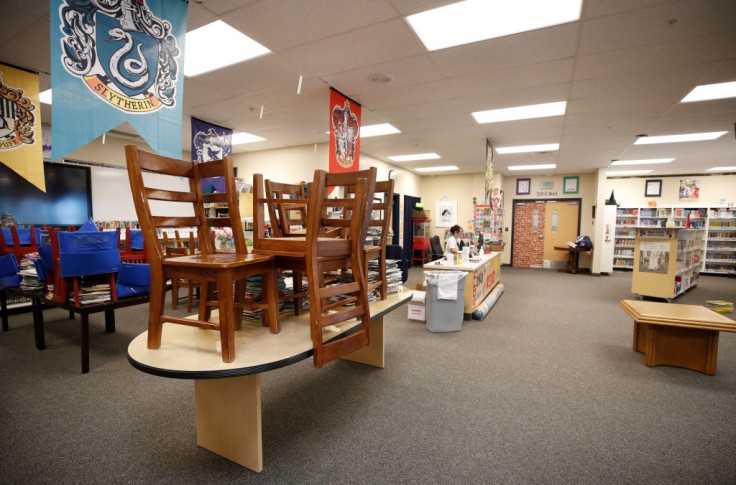
The Davis School District, a prominent school district in Utah, has made a controversial decision to remove the Bible from its elementary and middle schools.
The move comes after a parent expressed frustration over the presence of certain materials in schools and successfully convinced the district to deem some Bible verses as inappropriate for younger children.
This decision has raised concerns among the community, and there are now speculations about the potential removal of another significant religious text, the Book of Mormon.
District's Review Committee Responds to Parental Complaint
In response to a complaint from a concerned parent, the Davis School District, which serves approximately 72,000 students in Utah, formed a review committee to assess the presence of sensitive materials in schools.
According to NPR, this initiative followed a 2022 state law requiring parental involvement in decisions regarding such materials.
The committee, comprising teachers, parents, and administrators, conducted an extensive review of various literary works, including the Bible.
Following the committee's evaluation, the Davis School District decided to remove the Bible from elementary and middle schools while opting to retain it in high schools.
This decision aimed to address the concerns raised by the parent regarding the explicit or violent content within certain Bible verses.
However, the specific passages deemed unsuitable for younger students were not disclosed by the committee, leaving the community curious about the rationale behind the removal.
Read Also: Nashville Pastor Opens Up About Grief After Losing 9-Year-Old Daughter To Covenant School Shooting
Controversy Surrounds Potential Book of Mormon Review
According to the Salt Lake Tribune, although details about the complainant's reasons were not disclosed, the district spokesperson, Chris Williams, confirmed that an official review request had been filed.
It remains uncertain whether this appeal was submitted by the same individual who objected to the Bible's inclusion.
Representatives from The Church of Jesus Christ of Latter-day Saints, which regards the Book of Mormon as a sacred text, declined to comment on the situation.
The decision by the Davis School District to remove the Bible has drawn attention to the broader issue of conservative parent activism and their concerns about the discussion of sensitive topics such as sex and violence in schools.
Across the United States, similar movements have emerged, with groups like Parents United advocating for more control over their children's education and the materials they are exposed to.
These efforts have resulted in an increasing number of challenges to books and attempts to restrict access to certain content.
According to the Associated Press, it is worth noting that the Bible has long been a target for book challenges, appearing frequently on the American Library Association's list of most challenged books.
Instances of temporary removal from school districts in Texas and Missouri were observed last year.
The concern about potential book banning procedures encompassing the Bible has also been raised in statehouses, particularly during discussions on expanding censorship policies.
For instance, Arkansas recently enacted a law that imposes penalties on librarians for providing "harmful" materials to minors and enables the public to request the relocation of materials within libraries.
As the debate over the Bible's removal unfolds, various organizations, such as EveryLibrary and PEN America, stress the need to consider the broader implications of book censorship.
They argue that if people are genuinely concerned about the removal of the Bible, they should also be attentive to the increasing censorship of other books in public schools.
With at least 121 proposals targeting libraries, librarians, educators, and access to materials tracked in recent months, it is evident that the issue of book censorship remains contentious and continues to be debated across the country.
Related Article